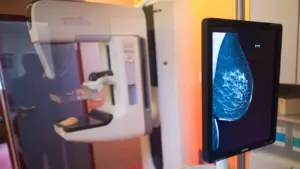
For moderate symptoms, psychotherapy and behavioral therapy are very useful. The goal here is to reduce stress reactions, as these reactions often trigger or worsen tics. Psychotherapy can also help treat accompanying problems such as ADHD, obsessive-compulsive disorder, depression, or anxiety.
At best, patients learn to replace unpleasant tics with less stressful tics through so-called habit reversal training. Relaxation training can also help.
Deep brain stimulation can also help with severe tics that have not responded to other treatments. Core areas of the brain responsible for coordinating movement are stimulated electrically. Treatment side effects are often only temporary, but can cause short-term speech and emotional disorders.
However, brain stimulation only provides symptomatic effects and cannot cure the disease or prevent it from getting worse.
If the tics are very severe and the person affected is suffering greatly, treatment may be the right option. Medications such as neuroleptics are used, which affect the effects of dopamine and are thought to have a tic-reducing effect. Botox injections to relax the affected muscle area or antidepressants may also be used in certain circumstances.
Children often don’t realize their tics at first. Usually it is parents who worry about their children and their strange behavior. But especially if Tourette’s syndrome appears in childhood or adolescence, it is likely that the symptoms will improve, or even disappear completely. Tics usually get worse during puberty, but subside again between the ages of 16 and 26.
The mental performance of Tourette’s patients is not impaired, but the large number of tics almost certainly causes difficulties in learning at school or in later professional life.
Because people around the sufferer are usually not informed about the disease, the reaction is often one of annoyance, fear, incomprehension, or anger – especially when an ignorant person is insulted by a person with Tourette’s syndrome. This can quickly lead to exclusion and rejection.
Parents of affected children and teens need to realize that their child has no control over their tics. There is no point in reprimanding a child if he twitches, barks or utters swear words. On the other hand, parents must make their children feel loved even though they have disorders.





